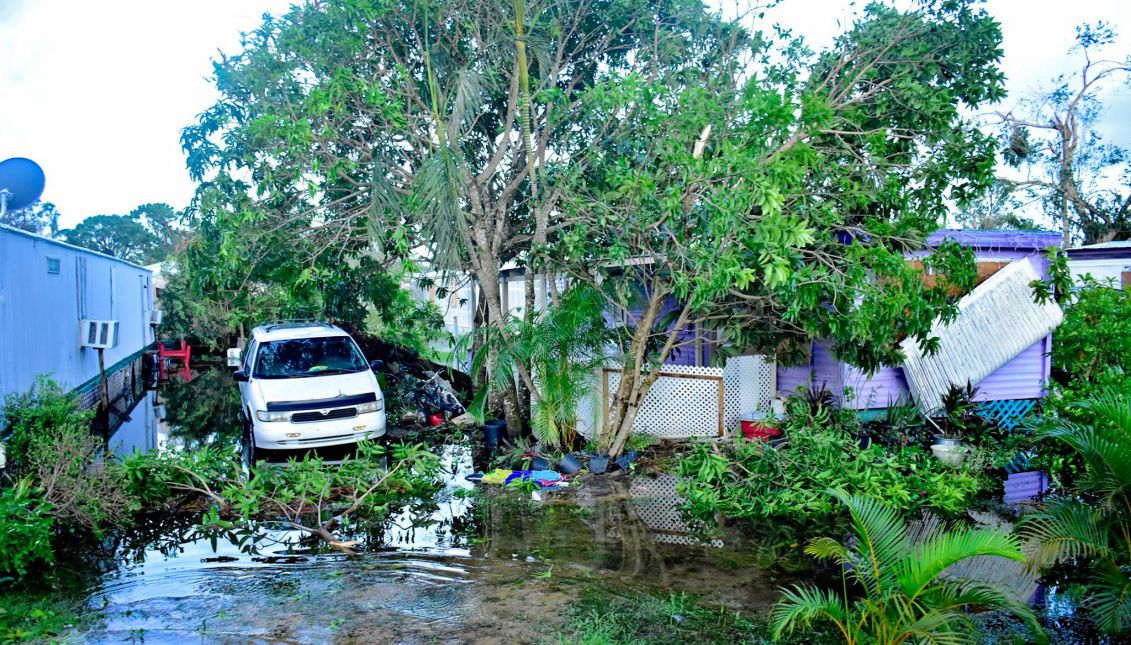
Florida's undocumented farmworkers especially hit hard by Irma
Hurricane Irma not only caused millions of dollars in losses and damaged thousands of homes but also exacted a particularly heavy toll on the agricultural sector in Florida, ruining harvests and leaving many undocumented farmworkers unemployed.
The hurricane's human cost is particularly apparent in Immokalee, a southwestern Florida town of around 20,000 inhabitants where approximately half of the population are undocumented farmworkers from Mexico, Guatemala and Haiti who work in tomato, cucumber, bell pepper and pumpkin fields.
Zulaika Quintero, advocacy support assistant at the Redlands Christian Migrant Association (RCMA), told EFE that Irma, which made landfall in southwestern Florida on Sept. 10, severely damaged farmworkers' homes and also destroyed a large percentage of the crops in that area of the state.
"Water got inside most of the homes, and people are afraid that they're contaminated," said Quintero, the director of the elementary school in the Immokalee community.
The major hurricane also left hundreds of farmworkers unemployed when it ravaged crops and covered them with trees, branches and debris.
Practically all of the crops were destroyed, Quintero said, adding that "everything they'd planted was damaged."
The natural disaster has exacerbated the grinding poverty in that area of the state, whose population is mostly Hispanic, and prompted the RCMA to provide food aid, especially for children.
"Children will be given lunch and dinner until October," Quintero said, adding that undocumented farm workers are waiting for the situation to improve so they can return to work.
The farm laborers who make up the Coalition of Immokalee Workers, a worker-based human rights organization, say thousands of hectares were destroyed by Hurricane Irma, which made landfall in the Florida Keys and then later moved up the west coast of the state.
CONTENIDO RELACIONADO
Cruz Salucio Perez, a farmworkers' leader and member of the coalition, lamented that the hurricane had wiped out everything "just when the workers were to start collecting the harvest" (the tomato harvest runs from November until May) and predicted that the consequences of the damage would be felt nationwide.
Florida's struggling citrus industry, which provides employment to more than 45,000 people and generates some $8.6 billion in total sales, also was not spared Irma's wrath.
Irma destroyed more than half of Florida's orange crops, further reducing a harvest that was already expected to be the smallest in 50 years, the Florida Department of Citrus said.
The situation is problematic for farmworkers but also for the thousands of families who depend on agribusiness for their livelihoods, "such as packers, cleaning crews, etc."
Salucio Perez called on authorities to help thousands of farmworkers build higher-quality houses for themselves and their family members.
Immokalee is one of the poorest communities in the United States, according to figures provided by Jeff Fox, who serves as director of the Mother Teresa Project and regularly leads social service brigades to the town made up of students from nearby Ave Maria University.










DEJE UN COMENTARIO:
¡Únete a la discusión! Deja un comentario.